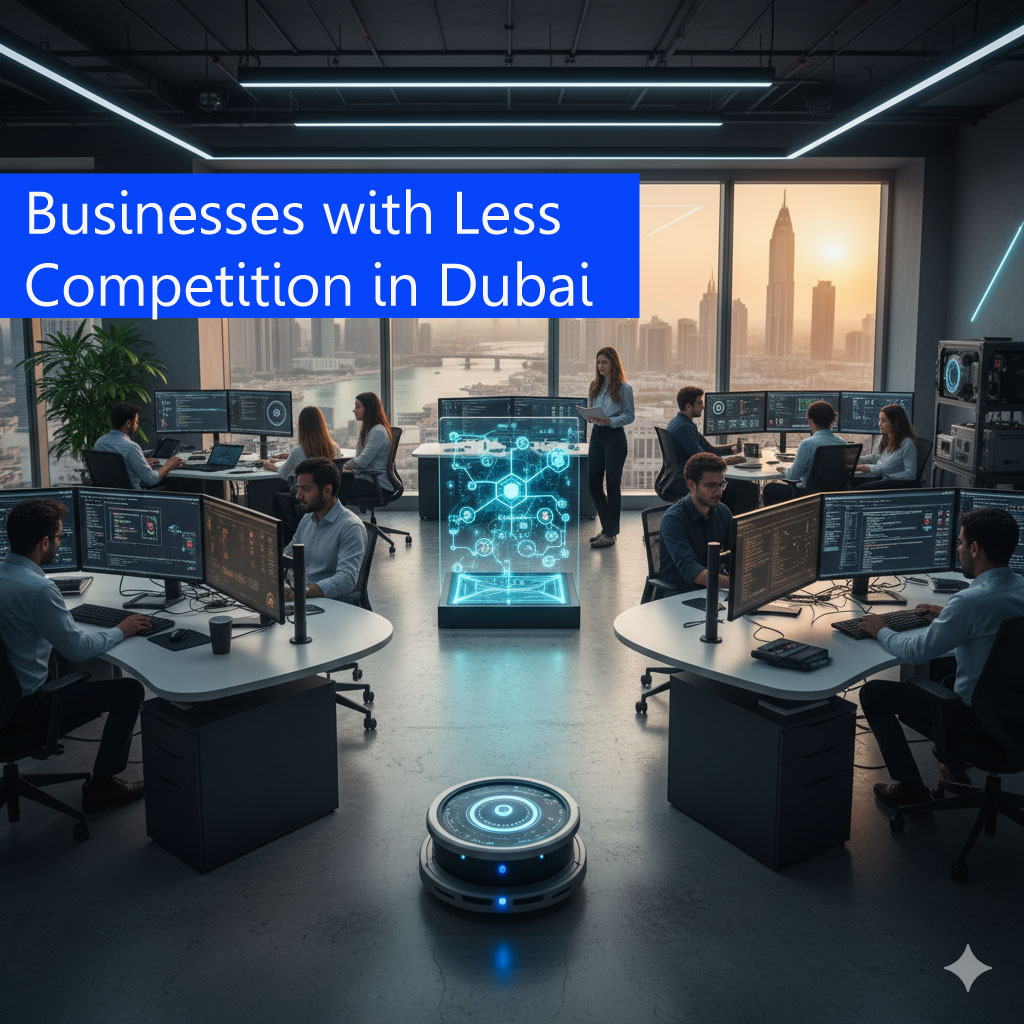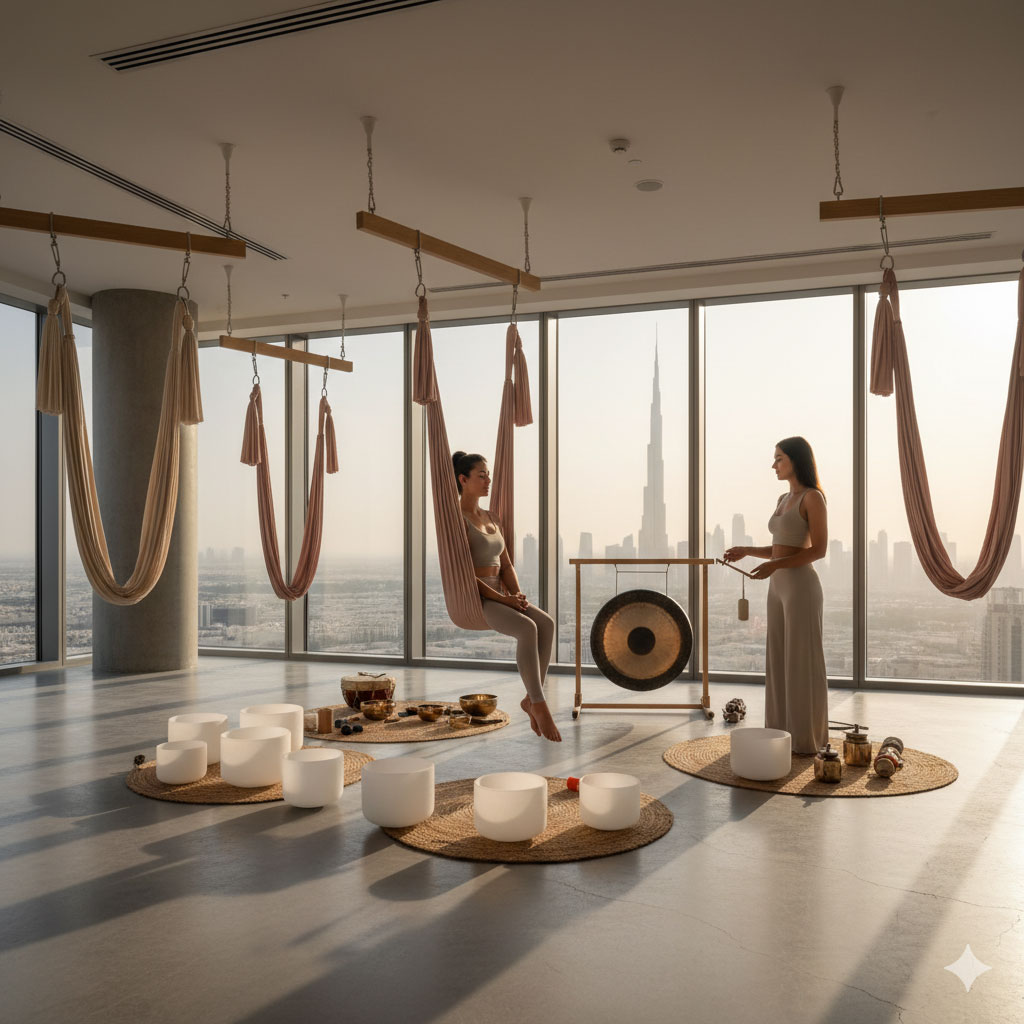Businesses with Less Competition in Dubai

Unearthing Untapped Potential: Less Competitive Business Niches in Dubai and the Power of Branding
Dubai, a dazzling jewel in the crown of the UAE, is globally renowned for its towering skyscrapers, luxurious lifestyle, and a relentless drive for innovation. It’s a city that pulsates with ambition, attracting entrepreneurs and established corporations alike, all eager to stake their claim in its dynamic economy. This vibrant, ever-evolving landscape has fostered an intensely competitive business environment, where myriad businesses vie for consumer attention and market share. Yet, beneath the surface of this bustling marketplace, certain sectors and niches offer a less saturated landscape, presenting unique opportunities for astute entrepreneurs. Identifying these areas, understanding their underlying dynamics, and, crucially, harnessing the transformative power of branding, can pave the way for remarkable success in a city often perceived as the ultimate business battleground.
Navigating the Competitive Tides: Identifying Less Saturated Business Landscapes
While Dubai’s primary sectors like real estate, hospitality, and retail are fiercely competitive, a deeper dive reveals pockets of opportunity where the barriers to entry might be different, or the demand is nascent but growing. These are often areas that capitalize on evolving consumer preferences, technological advancements, or a heightened focus on specialized services.
1. Hyper-Niche, Specialized Services within Established Sectors:
Instead of broad strokes, success lies in fine-tuning offerings within seemingly saturated markets. Consider the food and beverage industry:
Specialized Dietary F&B:
The global health and wellness trend is robust in Dubai. While there are countless restaurants, those exclusively focusing on vegan, gluten-free, keto, or organic-only meal prep services, catering, or even dedicated cafes, operate within a less crowded segment. These cater to a discerning clientele willing to pay a premium for specific dietary needs and ethical sourcing.
Artisanal & Boutique Retail:
Moving beyond mass-produced goods, businesses offering handmade crafts, bespoke fashion, custom-designed furniture, or curated selections of unique international products can carve a distinct niche. Think of a boutique selling ethically sourced, handcrafted jewelry from specific regions, or a store specializing in vintage luxury items.
Personalized Experience Services:

The demand for unique experiences is growing. This could involve bespoke travel planning for adventurers, highly personalized fitness training (e.g., pre/post-natal fitness, sports-specific conditioning), or custom event planning for intimate, high-end gatherings rather than large-scale corporate events.
2. Emerging Technology and Future-Forward Solutions:
Dubai’s government is aggressively pushing its agenda to become a global hub for technological innovation. This creates fertile ground for businesses aligning with these strategic visions.
Sustainable Technologies and Green Solutions:
With the UAE’s strong commitment to sustainability (e.g., Dubai Clean Energy Strategy 2050), there’s a burgeoning demand for businesses offering smart waste management solutions, renewable energy installations (solar panels for homes/businesses), sustainable building materials, and eco-friendly product distribution. The market is still maturing, offering first-mover advantages.
AI-Powered Automation & Analytics for SMEs:
While large corporations have adopted AI, many Small and Medium-sized Enterprises (SMEs) in Dubai lag. A business specializing in providing accessible, scalable AI and automation solutions for SMEs – such as intelligent CRM systems, predictive analytics for inventory, or AI-driven customer service chatbots – can tap into an underserved market.
Blockchain and Web3 Applications:
Beyond cryptocurrency, applications of blockchain in supply chain management, digital identity verification, intellectual property protection, or even tokenized loyalty programs are still relatively nascent but gaining traction, offering significant growth potential.
3. Specialized Lifestyle, Wellness, and Education Services:
Dubai’s affluent and diverse population constantly seeks premium services that enhance their quality of life.
Exclusive Wellness & Holistic Health Centers:
Beyond standard gyms and spas, demand exists for highly specialized wellness centers focusing on areas like functional medicine, advanced physiotherapy, mental well-being retreats, or alternative therapies that combine Eastern and Western practices. These often target high-net-worth individuals seeking comprehensive health solutions.
Boutique Educational & Skill Development Programs:
While mainstream education is well-served, there’s less competition in highly specialized skill development. This could include coding bootcamps for specific programming languages, advanced digital marketing academies, executive coaching with a niche focus (e.g., leadership in AI ethics), or language schools offering instruction in less common languages.
Premium Pet Services:
Dubai’s pet ownership rates are rising, and owners are increasingly willing to invest in their companions’ well-being. Beyond basic grooming, services like specialized pet physiotherapy, gourmet pet food delivery, luxury pet boarding with unique amenities, or even pet photography and event planning, cater to a niche but dedicated clientele.
Why These Niches Offer Less Competition: Underlying Dynamics
The reduced competitive pressure in these areas is not coincidental; it stems from a confluence of factors:
- Higher Barriers to Entry (of a Different Kind): While some require significant capital, many require specialized expertise, certifications, or a deep understanding of a particular niche. A functional medicine clinic, for instance, requires highly qualified practitioners, specialized equipment, and adherence to specific regulations – deterring general practitioners. Similarly, developing AI solutions demands advanced technical skills.
- Niche Market Focus: These businesses deliberately target smaller, often more affluent or specific segments of the population. This contrasts with mass-market strategies that attract numerous competitors. By focusing on a “segment of one,” businesses can tailor their offerings precisely, making it harder for broad competitors to replicate.
- Evolving Consumer Needs and Awareness: Many of these opportunities arise from new trends (e.g., sustainability, personalized wellness, digital transformation) that consumers are only now fully embracing. As awareness grows, demand expands, but the market hasn’t yet caught up with a glut of providers.
- Governmental Support and Vision: The Dubai government’s proactive approach to diversification and innovation acts as a catalyst. Initiatives like Dubai Future Foundation, specific free zones for AI or design, and sustainability goals, provide a supportive ecosystem, making it easier for pioneering businesses to establish themselves and gain traction before widespread competition emerges.
- Innovation in Business Models: Many less competitive businesses thrive because they introduce novel ways of delivering services or products. A mobile pet grooming service offers unparalleled convenience, differentiating it from traditional brick-and-mortar salons. Cloud kitchens specializing in a single, high-quality cuisine can outmaneuver traditional restaurants burdened by high overheads.
The Transformative Power of Branding in Niche Markets
While finding a less competitive niche is a significant first step, it is branding that truly unlocks and sustains success in Dubai, even within these nascent markets. In a city where luxury and quality are often expected, and where a vast array of choices constantly bombard consumers, effective branding transcends mere aesthetics; it builds trust, communicates value, and fosters loyalty.
For businesses operating in these less competitive sectors, branding is not just an advantage; it’s a strategic imperative. Here’s why:
- Establishes Credibility and Trust: When entering an emerging or specialized market, consumers may be unfamiliar with the concept or the provider. Strong branding – through a professional logo, consistent messaging, and a well-defined brand story – immediately conveys professionalism and reliability. It signals that this is a legitimate, high-quality offering, especially crucial for services involving health, education, or technology where trust is paramount.
- Differentiates and Communicates Unique Value Proposition: In niche markets, while competition might be less, it’s rarely absent. Branding helps articulate why a particular business is superior or different. Is it the sustainable sourcing? The personalized approach? The advanced technology? A clear brand message translates these unique selling points into compelling reasons for customers to choose your business over alternatives, or even over a generalist solution.
- Attracts the Right Target Audience: Niche businesses thrive by serving specific demographics. Effective branding speaks directly to these segments. If a business targets affluent individuals seeking bespoke experiences, its brand identity (visuals, tone of voice, communication channels) must exude luxury, exclusivity, and sophistication. This ensures marketing efforts are efficient, attracting qualified leads rather than a broad, indifferent audience.
- Commands Premium Pricing: Consumers are often willing to pay more for brands they perceive as high quality, reliable, and uniquely tailored to their needs. A strong brand elevates the perceived value of a product or service, justifying higher price points and contributing directly to healthier profit margins, which is vital in a city with high operational costs like Dubai.
- Builds Emotional Connection and Loyalty: Beyond functional benefits, successful brands forge emotional bonds. For a specialized wellness center, the brand might represent a promise of renewed vitality and peace of mind. For an artisanal product, it could embody heritage and craftsmanship. This emotional connection fosters repeat business, referrals, and creates a community around the brand, turning customers into advocates.
- Facilitates Word-of-Mouth and Referrals: In Dubai, reputation travels fast, especially within niche communities. A well-branded business provides customers with a clear, positive narrative to share. When someone recommends “that amazing, personalized AI consulting firm” or “the exclusive vegan bakery with the stunning branding,” it carries more weight than recommending a generic service.
- Attracts Talent and Investors: A strong brand makes a business more attractive to top talent who want to be associated with innovative, reputable ventures. It also signals professionalism and potential to investors, who are more likely to support a business with a clear vision, brand positioning, and a well-articulated brand strategy.
Conclusion: Branding as the Catalyst for Niche Dominance
Dubai remains a land of opportunity, not just for the bold, but for the discerning. By strategically identifying less competitive niches – whether in specialized dietary services, cutting-edge sustainable technologies, bespoke lifestyle solutions, or advanced educational programs – entrepreneurs can bypass the fiercest market battles. However, the discovery of a niche is only half the journey.
In a city that epitomizes ambition and excellence, branding transforms these nascent opportunities into sustainable successes. It is the strategic tool that clarifies your unique offering, builds essential trust, attracts your ideal clientele, justifies premium value, and cultivates lasting loyalty. For businesses venturing into Dubai’s less crowded arenas, a robust and authentic brand is not merely an option; it is the ultimate differentiator, the silent salesperson, and the most powerful catalyst for turning untapped potential into a thriving enterprise in this magnificent city. I will generate an image that represents a vibrant, diverse, and innovative business scene in Dubai, with elements that subtly hint at specialized or niche markets thriving amidst the larger, established sectors.
